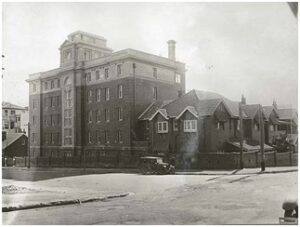In the year 2000, Access to Education was published. This was a ground-breaking piece of statutory legislation and this changed the way in which local authorities had to provide support for pupils with medical needs. It took the responsibility away from the special schools and placed it with the LA who then created different types of organisations to meet the requirements. Most of these were pupil referral units and home tuition services. This is when there was an exponential growth in professionals who were identified as working with pupils with medical needs.
The next statutory guidance came in 2013 and was entitled ‘Alternative Provision’ and the additional health needs statutory guidance, ‘Ensuring a good education for children who cannot attend school because of health needs’ which was an appendix of the Alternative Provision guidance. The most significant change in this guidance was that the statutory requirement for hours moved from 5 hours to up to 25 hours or as much as their health would allow. It was much clearer what the LA responsibilities were.
In 2014, the statutory guidance, ‘Supporting children with medical conditions’ finally made schools acknowledge their role in education for pupils with medical needs with the introduction of the Individual Healthcare Plan.
In 2018, as part of a government review into Alternative Provision, the All Parliamentary Group for Education asked for evidence about alternative provision and from the oral and written evidence, they made a series of recommendations in the report, Forgotten Children: alternative provision and the scandal of ever-increasing exclusions (House of Commons, Education Committee, July 2018) to which the DfE made a response. From this came the document, ‘Creating opportunities for all’ which sets out the government’s vision for the future of alternative provision. Pupils with medical needs are no longer an appendix but an integral part of the document, recognised at last as having equal rights as their peers. They also released the ‘Alternative Provision Innovation Fund’ to fund a series of research projects to inform the future direction for AP.
The statutory guidance for Local Authorities published in 2013 was update in December 2023 ‘Arranging education for children who cannot attend school because of health needs’ which links the responsibilities of local authorities to those of schools and clarifies some of the points that were being misinterpreted. There has been no change in legislation.
The DfE have also published the policy paper ‘SEND and alternative provision improvement plan’ entitled ‘Right support, right place, right time’ and sets out their plans to change the special educational needs and disabilities (SEND) and alternative provision system in England. Aspects of this plan are being piloted across the country and include details about potential improvements to the provision of education for children with medical needs, as part of the AP reforms.
It is in the light of these recent changes, that the National Association for Hospital Education has been created to be a national voice for professionals who work with pupils with medical needs, and to represent the views of the sector at a national level.
References:
- Alternative provision (DfE 2013)
- Ensuring a good education for children who cannot attend school because of health needs (DfE 2013)
- Supporting children with medical conditions at school (DfE 2014)
- Creating opportunities for all (DfE March 2018)
- Forgotten Children: alternative provision and the scandal of ever-increasing exclusions (House of Commons, Education Committee, July 2018)
- Government response to the Education Select Committee’s fifth report of session 2017-19 on alternative provision (DfE, Oct 2018)
- Investigative research into alternative provision DfE, GSR, October 2018)
- Alternative provision market analysis – research report (DfE, Isos partnership, GSR, October 2018)
- Arranging education for children who cannot attend school because of health needs DfE, 2023
- SEND and Alternative Provision Improvement Plan DfE, 2023

